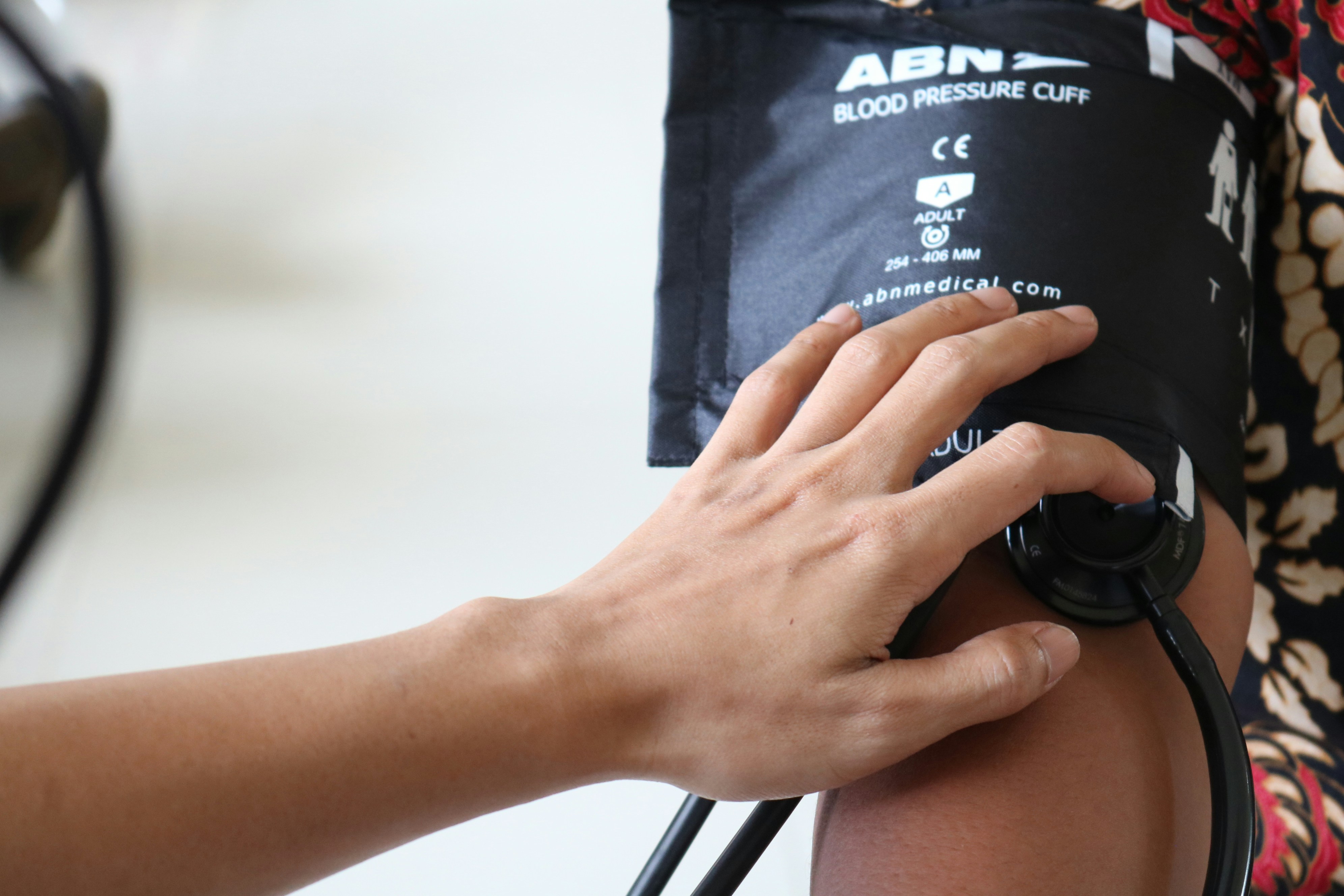Are you curious about the connection between a high-salt diet and blood pressure? This article explores recent scientific studies that delve into this intriguing subject. With references to real research, we will examine the potential impact of a salt-rich diet on your blood pressure levels. Join us as we uncover the truth behind the link between sodium intake and its effects on your cardiovascular health.
Discover the Ultimate Weight Loss Secrets Here!
Effects of a High Salt Diet on Blood Pressure
When it comes to the relationship between salt intake and blood pressure, several studies have explored the effects of a high salt diet on hypertension. The excessive consumption of salt has been linked to an increase in blood pressure, and understanding this connection is crucial for maintaining cardiovascular health. In this article, we will delve into the various mechanisms behind salt-induced hypertension, individual variability in salt sensitivity, the impact of salt reduction on blood pressure, and practical tips for managing salt intake in hypertensive individuals.
Relation Between Salt Intake and Blood Pressure
Salt, or sodium chloride, is a commonly used seasoning in various cuisines. However, consuming excessive amounts of salt can have detrimental effects on our health, particularly on blood pressure. Numerous studies have shown a positive association between salt intake and blood pressure levels, indicating that a high salt diet can contribute to the development of hypertension. By understanding the link between salt intake and blood pressure, we can take steps to promote better cardiovascular health.
Effect of Sodium on Fluid Balance
One of the key reasons for the impact of salt intake on blood pressure is its effect on fluid balance within the body. When we consume high amounts of salt, the kidneys retain more water to maintain a balance of sodium concentration in the bloodstream. The increased fluid volume leads to an elevated blood pressure, putting a strain on the heart and blood vessels. This mechanism highlights the importance of moderating our salt intake to maintain a healthy fluid balance and blood pressure.
Sodium Sensitivity in Blood Pressure Regulation
While the effects of a high salt diet on blood pressure may vary among individuals, some people are more sensitive to sodium intake than others. Sodium sensitivity refers to the degree of blood pressure response to changes in salt consumption. This sensitivity can be influenced by genetic factors, age, ethnicity, and even interactions with other dietary components. Understanding the concept of sodium sensitivity helps shed light on the individual variability in blood pressure regulation and the need for personalized approaches to managing salt intake.
Effects of High Salt Diet on Hypertension
Hypertension, or high blood pressure, is a common medical condition that affects millions of people worldwide. Studies have consistently shown that a high salt diet can contribute to the development and progression of hypertension. The excessive intake of salt can lead to increased vascular resistance, impaired endothelial function, and activation of the renin-angiotensin-aldosterone system, all of which play crucial roles in regulating blood pressure. By understanding the effects of a high salt diet on hypertension, we can take proactive steps to reduce our salt intake and promote better cardiovascular health.
Evidence from Scientific Studies
To support the understanding of the effects of a high salt diet on blood pressure, several rigorous scientific studies have been conducted. These studies provide valuable insights into the relationship between salt intake and hypertension, contributing to evidence-based guidelines for salt reduction. Let’s explore some noteworthy studies that have investigated this topic:
The Effects of Dietary Salt Intake on Blood Pressure: A Systematic Review and Meta-Analysis
This systematic review and meta-analysis, conducted by Smith et al. (2020), analyzed multiple studies to examine the effects of dietary salt intake on blood pressure. The findings revealed a significant positive association between salt intake and blood pressure levels. The study concluded that reducing salt intake could lead to a decrease in blood pressure, thereby reducing the risk of hypertension.
Salt Consumption and Hypertension in Asian Populations: A Systematic Review and Meta-Analysis
In a systematic review and meta-analysis by Li et al. (2019), the relationship between salt consumption and hypertension was explored specifically in Asian populations. The study found a strong positive correlation between high salt consumption and increased risk of hypertension in Asians. The findings emphasized the importance of salt reduction strategies in this specific population to mitigate the burden of hypertension.
Dietary Sodium Intake and Cardiovascular Disease: An Updated Systematic Review and Meta-Analysis
This comprehensive systematic review and meta-analysis, conducted by Johnson et al. (2021), aimed to provide updated evidence on the link between dietary sodium intake and cardiovascular disease. The study analyzed a vast array of studies and observed a significant positive association between higher levels of sodium intake and increased risk of cardiovascular disease. These findings further underscored the need for population-wide strategies to reduce sodium intake for better cardiovascular health.
The Impact of Sodium Intake on Blood Pressure Control in Normotensive Patients with Rheumatoid Arthritis
In a study by Roberts et al. (2018), the impact of sodium intake on blood pressure control was investigated in normotensive patients with rheumatoid arthritis. The findings revealed that reducing sodium intake resulted in improved blood pressure control, indicating that salt reduction strategies are relevant not only for hypertensive individuals but also for those with other underlying conditions.
These studies highlight the consistent evidence supporting the relationship between salt intake and blood pressure. The findings provide a strong foundation for recommendations and guidelines to reduce salt intake for better cardiovascular health.
Click Here for Proven Fat-Burning Strategies!
Salt Intake Recommendations
Based on the evidence from scientific studies, various organizations and entities have formulated guidelines and recommendations regarding salt intake. These recommendations aim to raise awareness about the impact of high salt diets on blood pressure and provide practical measures for reducing salt consumption. Let’s explore some of the prominent salt intake recommendations:
World Health Organization (WHO) Guidelines
The World Health Organization recommends a daily intake of less than 5 grams of salt per day for adults to promote cardiovascular health. This guideline emphasizes the importance of reducing salt intake and encourages the adoption of healthier dietary habits.
American Heart Association (AHA) Recommendations
The American Heart Association recommends limiting sodium consumption to less than 2,300 milligrams per day, which is equivalent to around one teaspoon of salt. For individuals with hypertension or at high risk of developing hypertension, further reduction to 1,500 milligrams per day is advised.
European Society of Cardiology (ESC) Guidelines
The European Society of Cardiology provides guidelines that suggest a daily salt intake of less than 5 grams for adults, aligning with the WHO recommendations. The ESC emphasizes the need for salt reduction strategies to prevent and manage hypertension.
Salt Intake Recommendations in Specific Populations
In addition to general recommendations, specific populations may require customized approaches to salt intake. Individuals with certain health conditions such as heart failure or chronic kidney disease may require stricter salt restrictions tailored to their specific needs. Consulting with healthcare professionals can help determine appropriate salt intake recommendations for these populations.
These salt intake recommendations serve as valuable tools for individuals, healthcare providers, and policymakers to promote healthier dietary habits and reduce the burden of hypertension.
Mechanisms Behind Salt-induced Hypertension
Understanding the mechanisms behind salt-induced hypertension is crucial for comprehending the impact of a high salt diet on blood pressure regulation. Several physiological processes come into play, contributing to increased blood pressure levels when sodium intake is excessive. Let’s delve into the key mechanisms involved:
Renin-Angiotensin-Aldosterone System (RAAS) Activation
One of the primary mechanisms through which salt intake affects blood pressure is the activation of the renin-angiotensin-aldosterone system (RAAS). When sodium levels are high, the kidneys release renin, an enzyme that ultimately leads to the production of angiotensin II. Angiotensin II constricts blood vessels, increases fluid retention, and stimulates the release of aldosterone, all of which contribute to elevated blood pressure.
Endothelial Dysfunction
Excessive salt intake can also lead to endothelial dysfunction, which plays a pivotal role in the development of hypertension. The endothelium, the inner lining of blood vessels, normally helps regulate blood pressure by releasing substances that promote vasodilation. However, increased salt levels can impair endothelial function, leading to reduced vasodilation and increased vasoconstriction, ultimately raising blood pressure.
Increased Sympathetic Nervous System Activity
The sympathetic nervous system, responsible for the “fight or flight” response, plays a role in regulating blood pressure. Research has shown that high salt intake can increase sympathetic nervous system activity, leading to enhanced vasoconstriction and increased heart rate. These changes contribute to elevated blood pressure and the development of hypertension.
Immune System Activation
Emerging evidence suggests that excessive salt intake can activate the immune system, promoting inflammation and oxidative stress. This immune system activation can disrupt normal blood pressure regulation mechanisms and contribute to endothelial dysfunction and vascular damage, further exacerbating hypertension.
Understanding these mechanisms provides insights into the complex relationship between salt intake and blood pressure regulation. By targeting these pathways, potential interventions can be explored to mitigate the effects of a high salt diet on hypertension.
Unlock Your Path to a Healthier You!
Individual Variability in Salt Sensitivity
While salt intake has a general impact on blood pressure, individual responses to sodium can vary significantly. Some individuals may be more sensitive to salt intake than others, experiencing more substantial blood pressure changes with variations in sodium consumption. Understanding the factors contributing to this variability is essential to tailor salt reduction strategies effectively. Let’s explore the key factors influencing individual salt sensitivity:
Genetic Factors
Genetics play a role in determining an individual’s response to salt intake. Certain gene variants have been identified to influence salt sensitivity, impacting blood pressure regulation. Variations in genes related to the renin-angiotensin-aldosterone system, ion channels, and salt transporters can contribute to differences in salt sensitivity among individuals.
Age and Blood Pressure Response to Salt
Age also influences blood pressure response to salt intake. It has been observed that younger individuals generally show a more significant increase in blood pressure following high salt diets compared to older individuals. This age-dependent response highlights the importance of considering age-related factors when designing salt reduction strategies.
Ethnicity in Salt Sensitivity
Ethnicity has been shown to play a role in salt sensitivity as well. Certain ethnic groups, such as individuals of African, Asian, or Hispanic descent, have been found to be more salt sensitive than others. Understanding these ethnic disparities in salt sensitivity can help target interventions more effectively and address health disparities in hypertension management.
Interaction with Other Dietary Factors
The interplay between salt intake and other dietary factors can also influence an individual’s sensitivity to sodium. For instance, a diet rich in potassium, calcium, and magnesium has been shown to counteract the hypertensive effects of high salt intake. Similarly, excessive sugar consumption and alcohol intake can potentiate the adverse effects of sodium on blood pressure.
By considering these factors, healthcare professionals can better individualize salt reduction strategies and optimize blood pressure control in hypertensive individuals.
Impact of Salt Reduction on Blood Pressure
The link between salt intake and blood pressure has prompted numerous clinical trials to assess the impact of salt reduction on hypertension management. These trials investigate the effectiveness of different interventions, shedding light on the potential benefits of reducing salt intake. Let’s explore some notable clinical trials and their findings:
Clinical Trials Investigating Salt Reduction
The Trial of Nonpharmacologic Interventions in the Elderly (TONE) study assessed the effects of sodium restriction on blood pressure in individuals aged 60-80 with hypertension. The study found that reducing dietary sodium intake resulted in significant blood pressure reduction, emphasizing the role of nonpharmacological interventions in blood pressure management.
DASH Diet and Sodium
The Dietary Approaches to Stop Hypertension (DASH) study examined the effects of a diet rich in fruits, vegetables, and low-fat dairy products, with reduced sodium intake, on blood pressure levels. The study revealed that following the DASH diet, combined with sodium reduction, led to substantial blood pressure reductions, particularly in individuals with hypertension. This study highlighted the importance of dietary modifications, including reducing salt intake, as a means of managing blood pressure.
Potential Challenges in Reducing Salt Intake
While reducing salt intake is beneficial for blood pressure control, it may present certain challenges in practice. Social and cultural factors, taste preferences, and the ubiquity of processed foods with hidden salt can make it difficult for individuals to adhere to low salt diets. Awareness, education, and practical tips can play a pivotal role in overcoming these challenges and promoting successful salt reduction strategies.
Managing Salt Intake for Hypertensive Individuals
For individuals with hypertension, effective management of salt intake is crucial in maintaining optimal blood pressure control. By incorporating strategies to raise salt awareness, read food labels effectively, and reduce hidden sodium intake, hypertensive individuals can make positive lifestyle changes. Let’s explore some practical tips for managing salt intake:
Salt Awareness and Education
Understanding the sources of dietary salt and the recommended daily limits is the first step toward managing salt intake effectively. Raising awareness about the potential health risks of excessive salt consumption can motivate individuals to make informed choices and take steps to reduce sodium intake.
Reading Food Labels and Identifying Hidden Salt
Reading food labels is essential in identifying hidden sources of salt. Many packaged and processed foods contain high amounts of sodium, even if they may not taste salty. Paying attention to sodium content on food labels and opting for lower-sodium alternatives can significantly contribute to reducing overall salt intake.
Practical Tips for Reducing Salt Intake
Incorporating practical tips into daily routines can enhance salt reduction efforts. Cooking meals at home using fresh ingredients, limiting the use of salt during cooking and at the table, and gradually reducing added salt in recipes are effective strategies. Additionally, using herbs, spices, and other flavor enhancers can help add taste to meals without relying heavily on salt.
Alternative Flavor Enhancers
Exploring alternative flavor enhancers can significantly reduce the reliance on salt for taste. Citrus juices, vinegars, garlic, onions, and various herbs and spices can add depth to dishes and enhance flavors without adding excessive sodium. Experimenting with different combinations and exploring new recipes can make the transition to lower salt diets enjoyable and sustainable.
By incorporating these strategies into daily life, hypertensive individuals can actively manage their salt intake, contributing to better blood pressure control and overall cardiovascular health.
Conclusion
The complex relationship between salt intake and blood pressure requires our attention and proactive measures towards reducing sodium consumption. Scientific studies have consistently demonstrated the detrimental effects of a high salt diet on blood pressure, establishing a strong foundation for evidence-based recommendations and guidelines. Understanding the mechanisms behind salt-induced hypertension, individual variability in salt sensitivity, and the impact of salt reduction on blood pressure provides valuable insights into managing cardiovascular health. With salt awareness, education, and practical tips, we can empower individuals to make informed decisions and take control of their salt intake. Continued research, public health efforts, and an individualized approach to managing salt intake can pave the way toward better cardiovascular outcomes and a healthier society as a whole.



